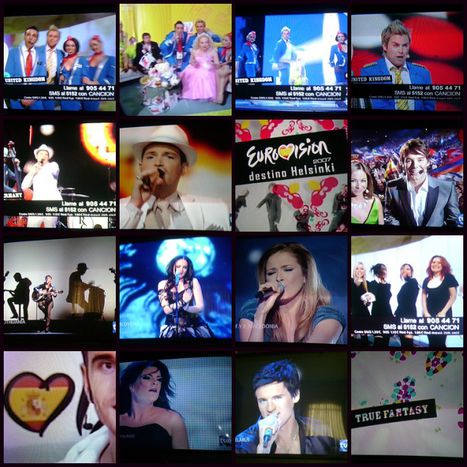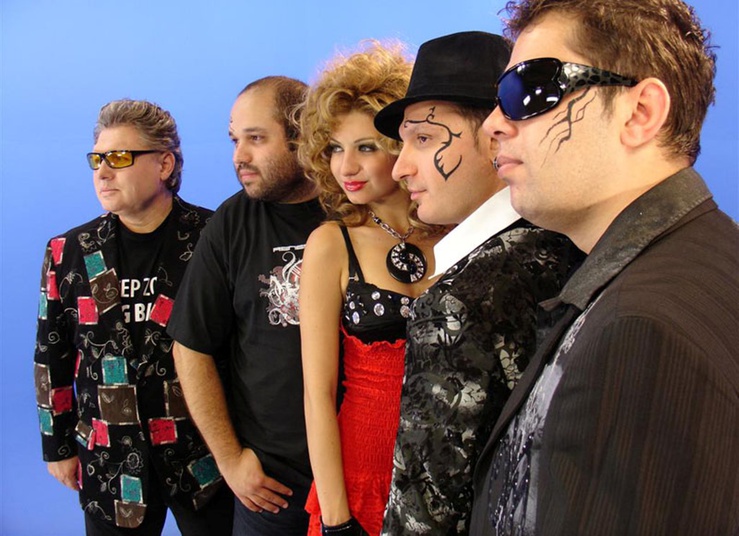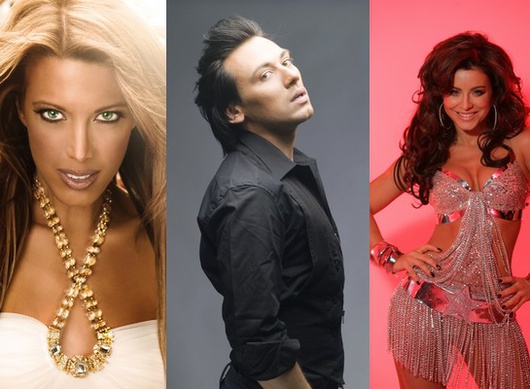
Eurovision song contest: chamber of horrors
Published on
Translation by:
Cafebabel ENG (NS)Dear readers – it’s not easy, but I have to tell you the truth. You surf cafebabel.com, amazed by the variety of themes the online magazine covers and the quality of the analyses it publishes. You’ve no idea of the unhuman conditions which are imposed on its journalists! Recently the editorial team asked me to write an article about the participants of the 2008 Eurovision song contest. Great!
So enthusiatic .... I am such a poor baboon
Imagine trawling through the umpteen videos uploaded onto Youtube, full of drum-bashing Bulgarians, Georgian cossacks, German cowboys and tone-deaf Frenchies. I’ve glimpsed the screaming Swedes, the gymnast Greeks and electronic Ukrainians. I grinned and bore the lesbian Russians, Danish queens and multiple-voiced Serbs. That’s not all either. The Eurovision song contest is also a good opportunity to deepen the transatlantic friendships between the Polish Mariah Careys, Portuguese Jennifer Lopez‘ and Spanish Backstreet Boys. As if one model on earth wasn’t enough…

But watch out. During the Eurovision song contest the cliches aren’t only onstage, but in the commentator boxes. I previewed a small selection of French presenters and came across more than one xenophobic joke. The problem is that as nothing actually happens during the Eurovision song contest, you still have to entertain the viewers. No better remedy than a good old-fashioned nationalist stereotype or even an ickle macho comment on what a singer is wearing. Doesn’t hurt.
Why the Eurovision song contest is so barren
Luckily I took breaks. My 'research' was a good excuse to watch Abba’s 1974 Waterloo win again, and above all to see one of my favourites from 2006, the Finnish 'satanic‘ (according to the French presenters) rock band Lordi. Well, it’s more pop than real hard rock, but important nevertheless.
That’s where I ask myself why the Eurovision song contest is actually so barren. Must intercultural dialogue automatically take place by placing people 'equally‘ on such a low level? It’s a truly philosophical question. I would even say, the philosophical question, if it’s about the process of international integration. Does the mouthpiece for other cultures require the use of crass simplistic formats, the death of any artistic work and finally the decline of creation? That was the argument of supporters for the preservation of 'pure‘ national identities from the very beginning. And every year the Eurovision song contest seems to continually validate this idea.
 Except that the Eurovision song contest has nothing to do with the current unification process of the continent. One is often inclined to forget that the Eurovision song contest is beamed from national television channels which are all part of the European broadcasting union (EBU). In 1956, the competition was merely a means for these channels to broadcast new programmes. The Eurovision song contest is everything but an instance in cultural exchange or musical discoveries. It’s just a huge entertainment programme.
Except that the Eurovision song contest has nothing to do with the current unification process of the continent. One is often inclined to forget that the Eurovision song contest is beamed from national television channels which are all part of the European broadcasting union (EBU). In 1956, the competition was merely a means for these channels to broadcast new programmes. The Eurovision song contest is everything but an instance in cultural exchange or musical discoveries. It’s just a huge entertainment programme.
Fifty years on
We understand better why year in, year out, we get the same dull feeling that we are watching a chamber of horrors and are being drawn into the most abominable sounds of Europe. But the Eurovision song contest doesn’t say anything about musical talent in Europe. This programme is just a mirror of what television channels really think about the European population.
National broadcasters choose their own candidates for the competition, consciously imagining what kind of international public it would attract. And because viewers in other countries are stupider than in your own, naturally we always end up with the same poison cocktail of pop and folklore. Be it rock, hip hop or electronic music, Europe is a continent of strong musical talents and our influences are no longer angled towards our origins. We're not suffering a decline in Europe. It’s just that European television is fifty years behind it's audience.
Translated from Eurovision : une galerie des horreurs



